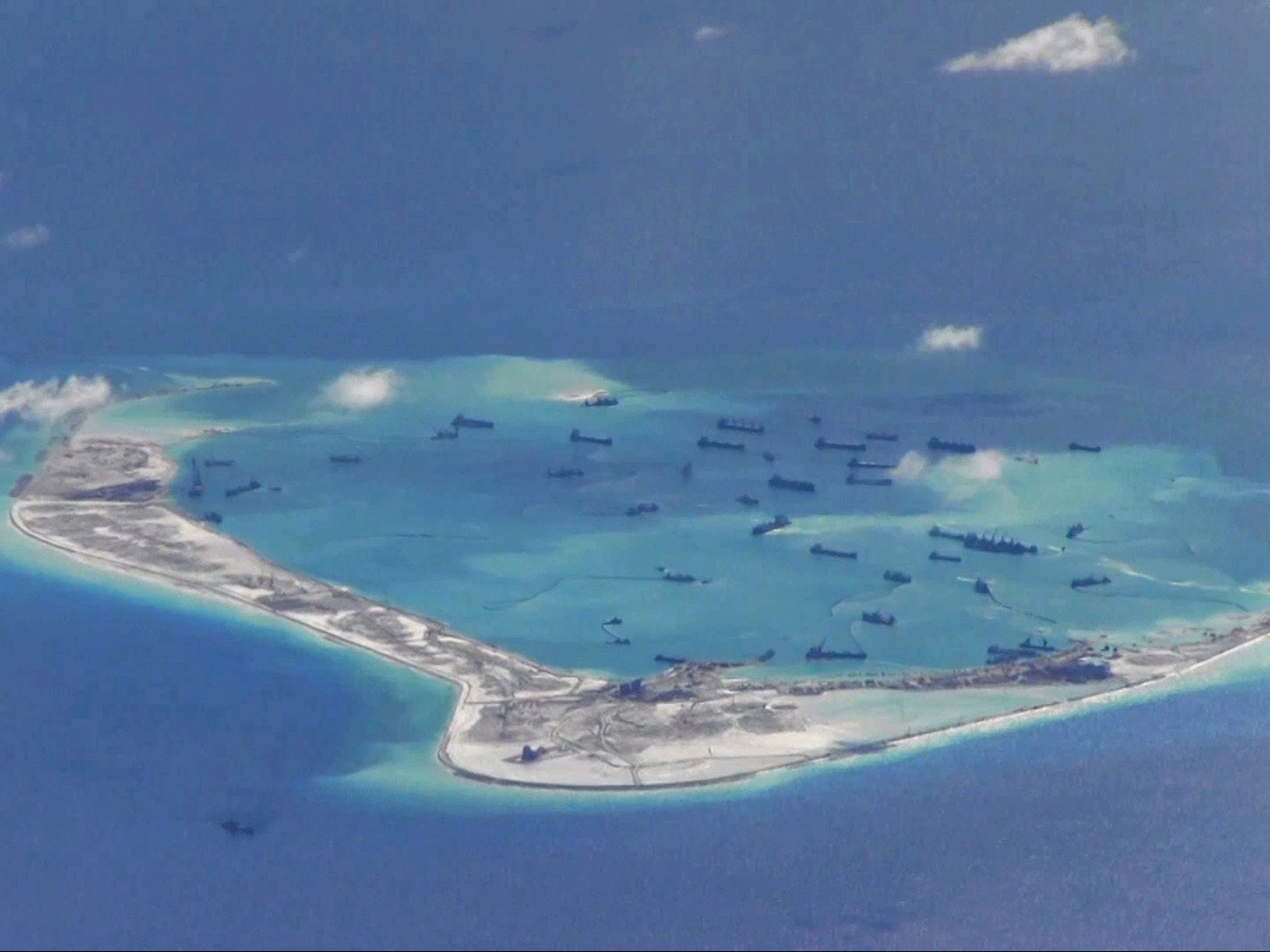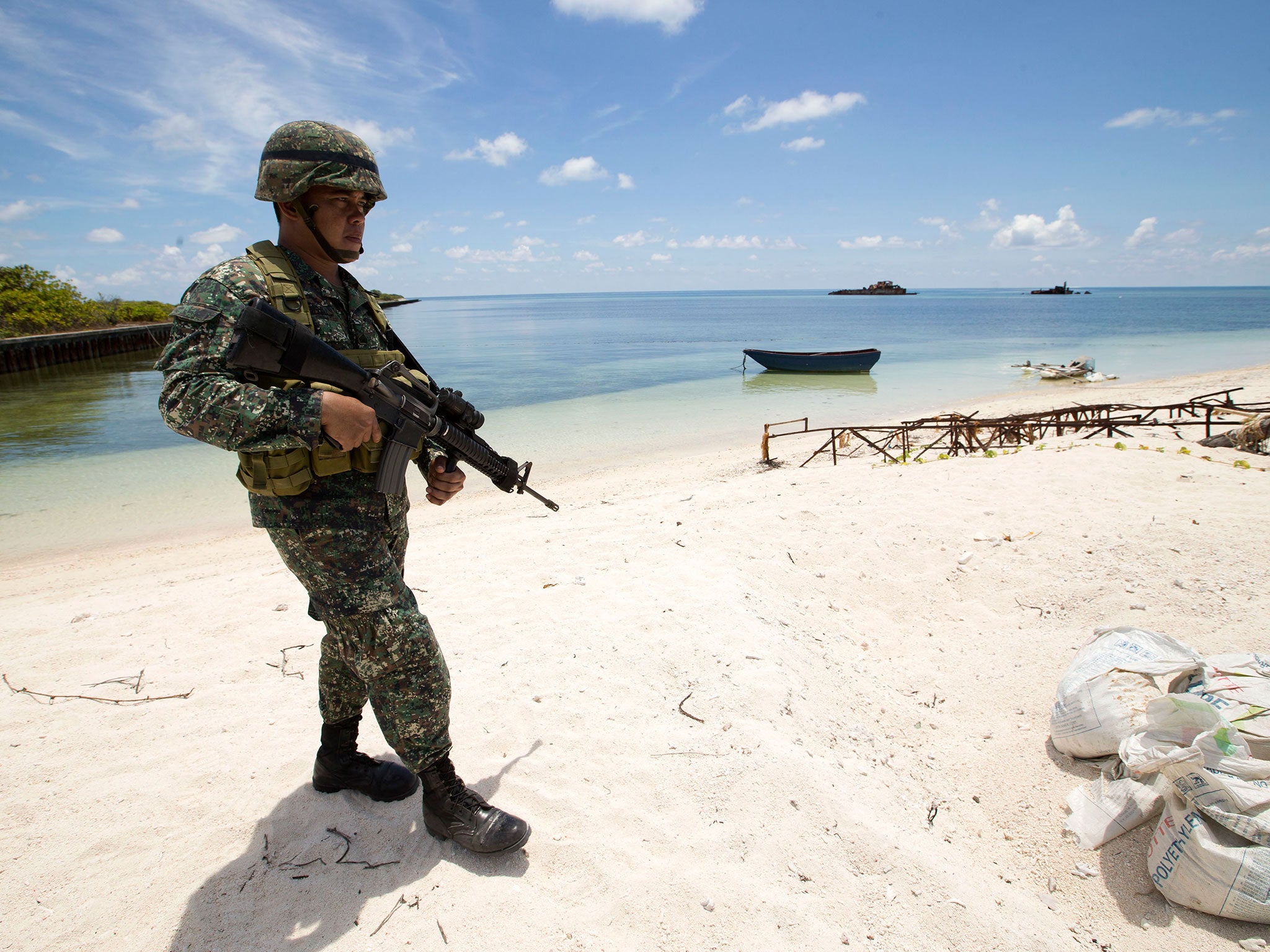China's artificial islands will be 'completed within days' in the disputed South China Sea
Construction work, including military bases, has fuelled tensions in the region

Your support helps us to tell the story
From reproductive rights to climate change to Big Tech, The Independent is on the ground when the story is developing. Whether it's investigating the financials of Elon Musk's pro-Trump PAC or producing our latest documentary, 'The A Word', which shines a light on the American women fighting for reproductive rights, we know how important it is to parse out the facts from the messaging.
At such a critical moment in US history, we need reporters on the ground. Your donation allows us to keep sending journalists to speak to both sides of the story.
The Independent is trusted by Americans across the entire political spectrum. And unlike many other quality news outlets, we choose not to lock Americans out of our reporting and analysis with paywalls. We believe quality journalism should be available to everyone, paid for by those who can afford it.
Your support makes all the difference.China has said it will finish its man-made islands in disputed areas of the South China Sea within days, heightening tensions with neighbouring countries.
Taiwan, Vietnam, the Philippines and Malaysia all claim various islands and reefs in the Spratly Islands, many of which are occupied by military forces.
Lu Kang, a spokesperson for the Ministry of Foreign Affairs announced the approaching completion of land reclamation today, calling the work “lawful, reasonable and justified”.

"They are not targeted at any other country, do not affect the freedom of navigation and overflight enjoyed by all countries in accordance with international law in the South China Sea, nor have they caused or will they cause damage to the marine ecological system and environment in the South China Sea, and are thus beyond reproach,” he added.
That claim is likely to be examined by the US military, following an incident last month where a Navy plane flying near one of the reclaimed islands was repeatedly challenged by the Chinese military and told to leave the area.
Mr Lu admitted that the islands satisfy “the need of necessary military defence” but insisted the main purpose was peaceful, including plans for maritime search and rescue, disaster prevention, marine scientific research, meteorological observation, conservation, navigation and fishing.
Consultations will continue towards a new “code of conduct” aimed to lessen tensions in the South China Sea and China is working with members of the Asean group of Southeast Asian nations, he added.
“China will continue to uphold the freedom of navigation as well as peace and stability in the South China Sea,” Mr Lu said.
The disputed islands lie amid some of the world's busiest shipping lanes, rich fishing grounds and potential undersea reserves of oil, gas and minerals.
The reclamation work has sparked fears China will use the artificial islands as military bases and to assert control over navigation in the South China Sea, most of which it asserts a claim to.
According to the US, Beijing's building programme on reefs and atolls now totals more than 2,000 acres and includes up to two airstrips capable of handling large military planes.
The issue was raised in a meeting between China’s defence minister, Fan Changlong, and the US Defence Secretary earlier this month.
Ash Carter called on China and others to “implement a lasting halt on land reclamation”, while Vietnam has also sent envoys to Beijing.
Following the installation of a Chinese oil rig in the disputed waters last month, the British government warned against increased tensions.
Hugo Swire, a foreign minister, said: “We urge all parties to exercise restraint and seek to de-escalate the situation.”
Additional reporting by AP
Join our commenting forum
Join thought-provoking conversations, follow other Independent readers and see their replies
Comments